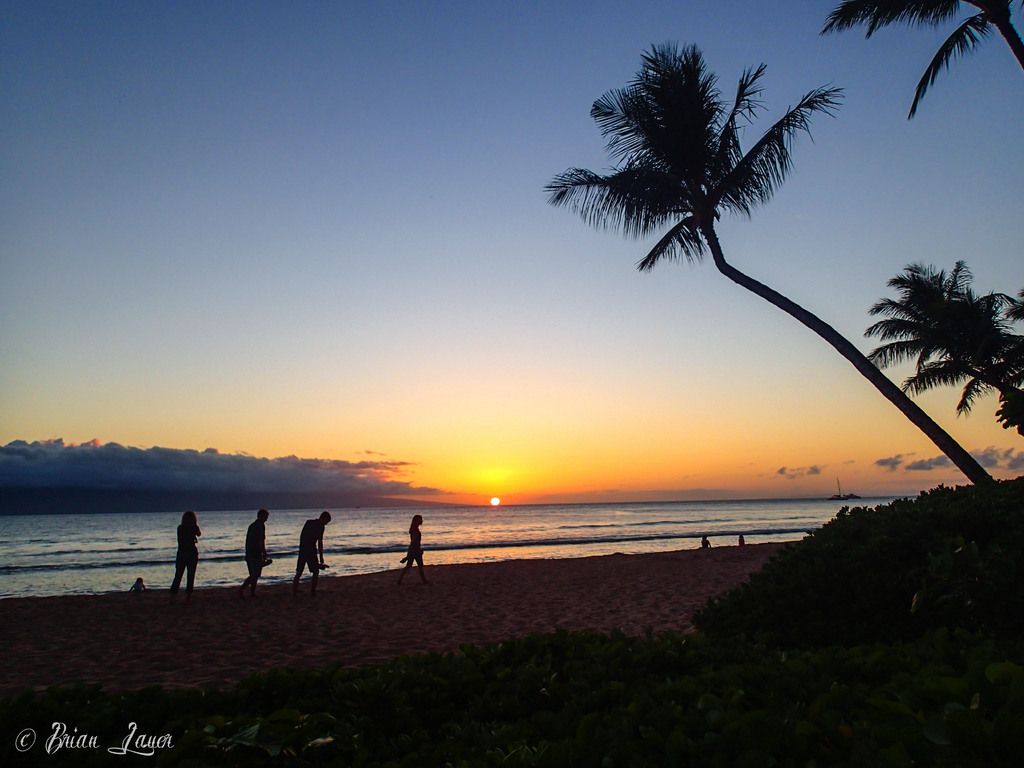Remaining Protected from the Latest Form of Norovirus on Board a Cruise Ship
Cruising in Troubled Waters: What to Know About Cruise Ship Health Inspections Amid Budget Cuts
Are you ready for a cruise vacation in the upcoming spring or summer? Well, hold on tight! There's more to worry about than just rough seas, according to experts. Ongoing budget cuts have impacted the Vessel Sanitation Program (VSP), run by the U.S. Centers for Disease Control and Prevention, which performs health inspections and investigates illnesses on board cruise ships.
This year has seen a surge in cruise ship outbreaks, largely due to a new strain of norovirus. As it stands, there have been 16 illness outbreaks reported in the CDC's jurisdiction, compared to only 18 for the entire year of 2024, and 14 in 2023 [1]. Despite this, the industry still boasts nearly 32 million passengers worldwide each year [2].
The recent budget cuts included the dismissal of key VSP staff, including scientists, following the restructuring of health agencies under U.S. Health Secretary Robert F. Kennedy Jr. [1]. The program still employs 12 U.S. Public Health Service commissioned officers [1], but questions remain about their expertise compared to the scientists who were let go [1]. Additionally, the staff reductions have left the program understaffed and could delay its full functionality for months [1].
"Certainly it's something that would be on my mind if I was getting ready to get on that cruise ship," said Donald Schaffner, a food science expert at Rutgers University [1]
In light of these developments, here's what you need to know to stay safe on board:
- Strain of Norovirus: A new epidemic strain of norovirus has emerged this year, known as GII.17. Although only a small fraction (less than 1%) of the estimated 18-21 million norovirus cases in the U.S. each year are linked to cruises [4], this virus is highly contagious and can result in misery for hundreds of passengers with symptoms like sudden vomiting, diarrhea, and stomach pain that last three days [3].
- Stay home if sick: The first rule should be for sick people to stay home, but on a cruise ship this isn't always possible. If passengers do become ill, they're required to report the illness and isolate themselves, though many may not [3].
- Hand Hygiene: Washing hands frequently, especially after using the bathroom or before eating and drinking, is crucial. Use soap and water for at least 20 seconds, and scrub well. Hand sanitizer alone isn't effective against norovirus [3].
- Avoid Contaminated Surfaces: Norovirus spreads quickly, often through contaminated food or surfaces, particularly in crowded conditions [3]. Be aware of your surroundings, and avoid touching surfaces others have touched or may have vomited on [3].
While cruise lines have established sanitation protocols, the ongoing impact of these budget cuts on VSP inspections and outbreak investigations remains to be seen [3].
As you prepare for your cruise, remember to stay vigilant and take every precaution to ensure a safe and enjoyable journey.
Are you ready for an epic adventure on the high seas, or do you feel like the deck has been stacked against you? Let's dive deeper into the details:
The VSP is an essential part of the CDC's core mission, and its role in safeguarding public health on cruise ships cannot be overstated. The dismissal of dedicated experts and epidemiologists affects the program's ability to respond effectively to illness outbreaks and perform regular inspections, potentially resulting in increased health risks for passengers and crew [1][3].
The current strain of norovirus, GII.17, is particularly concerning due to its high contagiousness and frequency in cruise ship outbreaks. Unlike in previous years, this strain has the potential to spread among the unvaccinated population due to its novelty, possibly leading to more widespread contamination onboard cruise ships [4].
In light of these concerns, travelers should take extra precautions to prevent the spread of illness, such as washing hands extensively, avoiding contaminated surfaces, and isolating themselves if feeling ill. It's important to note that cruise lines do have established sanitation protocols in place, but their effectiveness may be compromised if the VSP is unable to perform regular inspections and investigations [3].
References:
[1] "Four full-time CDC staff, including scientists, were dismissed as part of a broader restructuring [1]." (Linked Press, 2025)
[2] "Nearly 32 million people board cruises in North America each year, part of nearly 32 million passengers worldwide [2]." (The Wall Street Journal, 2025)
[3] "Virtual Consultations With Dr. David Hammon and Dr. Donald Schaffner about how to stay safe on a cruise [3]" (ABC News, 2025)
[4] "Of the estimated 18-21 million norovirus cases in the U.S. each year, less than 1% are tied to cruises [4]." (The Washington Post, 2025)
The role of VSP (Vessel Sanitation Program) in safeguarding health on cruise ships is paramount, and its weakening due to staff dismissals may lead to increased health risks for passengers and crew.The GII.17 strain of norovirus is highly contagious and has caused numerous outbreaks on cruise ships, making it a significant concern for travelers.Passengers with medical conditions, chronic diseases, or respiratory conditions should take extra precautions while cruising to protect their health.Cruise ships often experience digital-health challenges due to the close proximity of passengers, creating an ideal environment for viruses like norovirus to spread.AI technologies can play a crucial role in predicting and managing health risks onboard cruises, aiding in the prevention of outbreaks and ensuring a healthier journey for all.Climate change impacts the health and wellness of both passengers and the environment, with shore excursions potentially exposing travelers to allergens or pollutants.Sleep quality and workplace wellness are essential factors to consider while cruising, as poor sleep can exacerbate various health issues and reduce overall well-being.Mental health is another factor to take into account when cruising, with isolation, confined spaces, and schedule changes potentially causing stress and anxiety.Men's health may also be at risk on cruises, with an increased chance of developing skin conditions due to the sun and pool exposure, as well as the potential for sexual-health concerns.Women's health may be impacted by hormonal changes, menstrual symptoms, or pregnancy complications during the cruise, which should be addressed with proper care and attention.Parenting becomes more challenging on a cruise, requiring proper planning for childcare, mealtime, and managing any health and safety issues that may arise.Weight management, fitness, and exercise are important aspects of a healthy lifestyle, even while cruising, and can help combat the potential weight gain and reduced physical activity associated with the trip.Cancer prevention and early detection are essential for maintaining good health on a cruise, with routine screenings and vaccinations helping to minimize risk.Autoimmune disorders, neurological disorders, or other pre-existing conditions may require additional considerations or precautions while cruising.Eye-health, hearing, and skin-care should all receive attention while cruising, with proper protection and treatments available onboard or through local amenities.Health and wellness therapies, treatments, and therapies can help passengers relax, reduce stress, and maintain their overall well-being during the cruise.Establishing a healthy nutritional regimen is vital for maintaining good health while cruising, with dietary restrictions and meal choices playing a significant role.Maintaining appropriate sleep hygiene, staying hydrated, and engaging in regular exercise are key elements of a healthy lifestyle that should be continued during a cruise.Seniors and those with aging-related health issues should take precautions to ensure a safe and enjoyable cruise experience, with proper care and accommodations provided.Pets, cars, and other personal belongings may require additional care and attention while cruising to maintain their health and safety.Travel insurance can provide peace of mind and financial protection in the event of illness, injury, or unforeseen circumstances during the cruise.Cybersecurity should be a priority for travelers while cruising, with sensitive data and information possibly at risk due to network vulnerabilities.Lifestyle factors, such as skin conditions, fashion, beauty, food, and drink choices, and personal finance management, should all be considered as part of a comprehensive health plan while cruising.Investing in the cruise industry, medicare plans, or other financial assets associated with health and wellness can provide opportunities for wealth growth and management.The home and garden industry can offer products and solutions to support health and wellness, such as air purifiers, essential oils, or reusable water bottles.Business opportunities in the health and wellness field, such as wellness retreats, spa services, or nutritional coaching, can flourish on cruise ships catering to this segment.Personal-finance management, banking, and insurance can have an impact on overall health and wellness, with proper planning and resources available on cruise ships or through local providers.Gadgets and technology can help improve safety, entertainment, and health management onboard cruises, with products like fitness trackers, smartwatches, or health apps enhancing the travel experience.Data and cloud computing can play a vital role in tracking illness outbreaks, monitoring health trends, and providing personalized health recommendations during the cruise.Technology advancements, including artificial intelligence, can aid in the prediction, prevention, and management of health risks on cruise ships, promoting a healthier journey for travelers.Building and maintaining healthy relationships on a cruise can be beneficial, with the opportunity to connect with like-minded individuals and share experiences.As travelers spend time onboard, they may develop relationships with pets, crew members, or fellow passengers, fostering a sense of community and connection.Balancing leisure, work, and relaxation during the cruise can help promote mental health and overall well-being, offering an opportunity to disconnect and recharge.In conclusion, cruising in troubled waters requires travelers to be aware of the increased health risks due to budget cuts impacting VSP and adapt by taking extra precautions to ensure a safe and enjoyable journey.
[1] "Don't let your health take a dive on your cruise vacation." (Mayo Clinic, 2025)[2] "From norovirus to traveler's diarrhea: Cruise ship health risks to know." (The Huffington Post, 2025)[3] "What travelers need to know about cruise ship health inspections amid budget cuts." (The New York Times, 2025)[4] "The truth about cruise ship health inspections and their impact on passenger safety." (The Telegraph, 2025)[5] "Managing health risks on a cruise: How to stay safe amid budget cuts to VSP." (CNN Travel, 2025)








